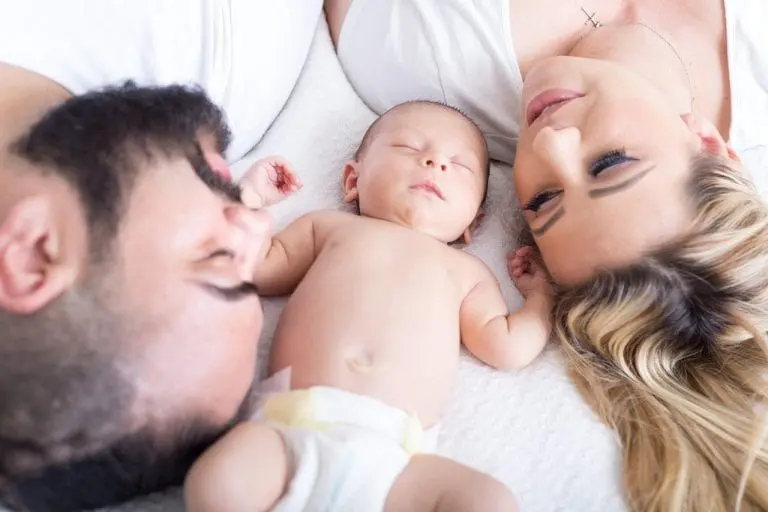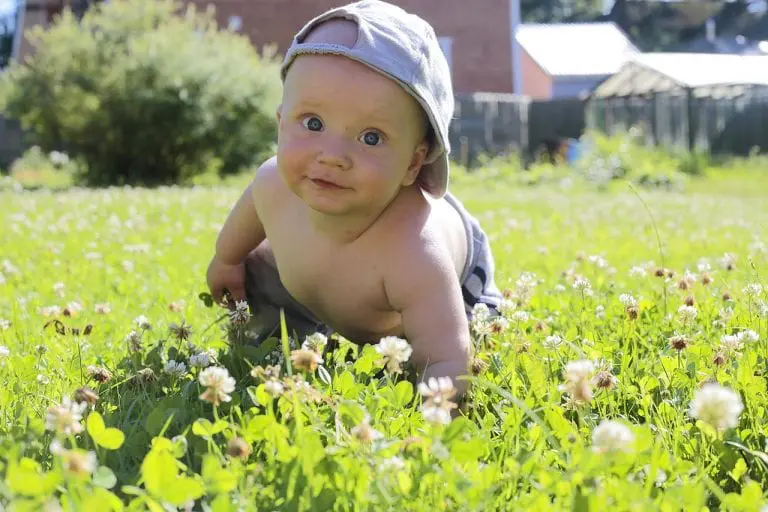How late is too late to get pregnant?

It is not impossible to become pregnant in your 40s but it is certainly not the norm. The proverbial biological clock usually causes baby panic in many women who are busy pursuing their careers, are without a partner, or just not ready for a pregnancy by their early 30s.
This relation between age and fertility leaves many women with a burning question: “how late is too late to get pregnant?”
Unfortunately, there is no fixed answer to that because some women will conceive at 42 and never have a complaint, while for others getting pregnant at 36 will be a problem. There are a lot of individual factors involved and just because you know someone who got naturally pregnant at 45, doesn’t mean you can bet on it too.
According to the CDC, almost about 40% of women between the ages of 40-44 have impaired fecundity.
What are the chances of getting pregnant in the 40s?
It depends if there have been conception problems in your family, your medical history, your general health, and importantly, how far in your 40s you are.
The odds of pregnancy are much better closer to 40 but they drop down significantly by the time you reach 45 when the chances of a natural conception are said to be less than five percent.
Modern medicine and technologies like IVF-ICSI can be helpful but beyond a certain age, even science cannot help you conceive. That is how nature intended and we have to respect that.
What affects your chances of getting pregnant in older age?
Quality of eggs
Women have over a million eggs at birth but after puberty, only one egg is released every month, which means only about 300-400 eggs could be useful in a woman’s lifetime.
It is not so much the number of eggs but actually the quality of eggs which causes a problem in older age. By your 40s the structure of the eggs begins to change and they are likely to have chromosomal abnormalities, which is why the risk of miscarriage and birth defects is more common in pregnancies that happen late.
Even with artificial reproductive technology, women are not able to conceive in later years because their eggs won’t cooperate. In fact, bad quality of eggs is one of the top reasons for failure of IVF.
Your ovArian reserve
By the time a woman reaches puberty, she is left with only half of her ovArian reserve. Up to 5 eggs may be used in every cycle of ovulation but only one matures completely and is released for fertilization.
From approximately the age of 15, a woman loses eggs every month and by the age of 40, she has exhausted a major portion of her ovArian reserve. You need only one good egg to be fertilized for a successful pregnancy, but the eggs that remain are of poorer quality.
The eggs in your ovaries are stored inside fluid-filled sacs that are called follicles. It is not assured that each follicle will contain an egg, which is why the number of eggs (or your ovArian reserve) cannot be determined.
However, there are some hormonal tests which can be done to get an idea of your ovArian reserve.
If you decide to go for an IVF procedure, the doctor will carry out ovArian stimulation based upon your reserve. Sometimes 40-plus women do not respond well to stimulation because their ovArian reserve is low, in which case the doctor may recommend natural cycle IVF.
In the absence of any other obvious factors, if you are unable to conceive with your own eggs, you may have to opt for IVF with donor eggs.
Your partner’s age and fertility status
When you decide to have children in older age, it is likely that your partner will also be older. Although men are capable of having children even up to their 70s, with growing age their sperm also deteriorates in quality.
Besides, about one-third of all infertility cases are attributed to male factor infertility so before blaming your own age or eggs, you might want to get your partner’s sperm tested.
Your lifestyle

Your genetic makeup determines your fertility to some extent and if women in your family had children in their 40s, you might even be able to.
However, your individual factors—stress, dietary habits, work schedule, body clock—are all different from those of your mother, which is why your fertility level may be different.
Maintaining a healthy lifestyle can boost your fertility to a certain extent.
So before you decide to get see an IVF doctor you may want to make some changes at your end:
- Eat right: A healthy, high-protein diet with fruits and vegetables can help your fertility. Give up on smoking, cut out caffeine, aerated drinks, processed food, and excessive alcohol.
- Sleep well: Stress is never good for fertility, so keep a check on your anxiety and try to get good sleep night after night
- Exercise: Even mild exercise like walking or yoga can improve blood circulation and be the answer to a lot of your problems.
A woman in her mid-30s has around 75 percent chance of conceiving within 12 months of trying but by the age of 40, the probability drops to 50 percent. From there, the egg quality deteriorates and fertility declines rapidly and a woman of 43 years has only about 2 percent chance of conceiving naturally.
The number of eggs, quality of eggs, and your overall health are all factors for this decline in fertility and even with the advanced fertility techniques available today, there is very little chance that you will be able to conceive with your own eggs by the age of 45.
There are several noted benefits of delaying parenthood as you are financially and emotionally more prepared for children but things can get difficult if you delay it way beyond the time limit provided by nature
Similar Posts:
- Increase Your Odds of Pregnancy and Relish the Joy of Parenting
- Now You are a Mom, It’s Time to Work on Getting your Body Back
- 5 Ways to Be Healthy During Your Pregnancy
- Challenges of Parenting and Pregnancy at 40 – What You Need to Know
- Three ways to make your Massage Parlor Comfortable for Pregnant Clients









